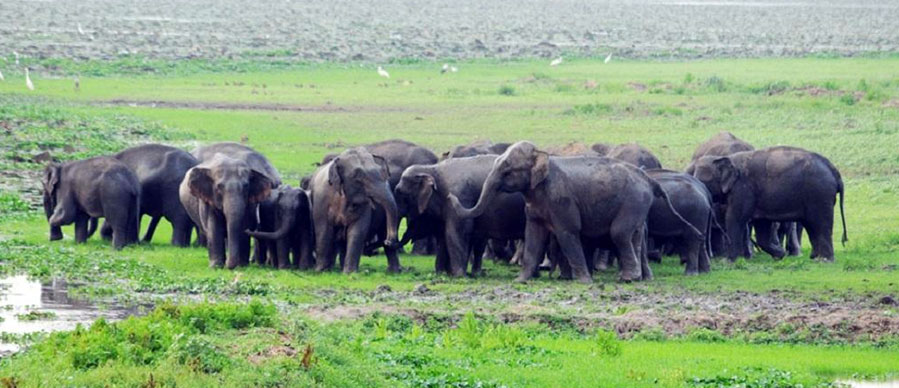Exploring the Rich Biodiversity of DeeporBeel Wildlife Sanctuary
By TUSHAR [21/Feb/2024]Nestled in the heart of Assam, India, lies the enchanting DeeporBeel Wildlife Sanctuary, a haven for nature enthusiasts and wildlife lovers. Just a short distance from the renowned Pobitora Wildlife Sanctuary, DeeporBeel offers a unique and diverse ecosystem that beckons travelers to immerse themselves in the beauty of Mother Nature. In this blog post, we will delve into the rich biodiversity of DeeporBeel, unveiling the wonders that await those who venture into its pristine landscapes.

A Lush Wetland Wonderland: Spread across an expansive area of approximately 4.14 square kilometers, DeeporBeel is a freshwater lake that transforms into a lush wetland during the monsoon season. The sanctuary is home to a myriad of flora and fauna, making it a vital ecological hotspot in the region. The wetland serves as a crucial stopover for migratory birds, earning it the designation of a Ramsar Site, emphasizing its global significance in terms of biodiversity conservation.
Avian Extravaganza: One of the main attractions of DeeporBeel is its avian population. The sanctuary boasts a staggering number of resident and migratory bird species, making it a paradise for birdwatchers. Common sightings include the Asian openbill stork, spot-billed pelican, northern pintail, and the majestic Brahminy ducks. The months of winter witness an influx of migratory birds from as far as Siberia, adding a vibrant splash of colors to the serene landscape.
Wildlife Encounters: Apart from its avian treasures, DeeporBeel is also home to a diverse array of wildlife. Lucky visitors may catch glimpses of the elusive fishing cat, smooth-coated otter, and the Indian python. The sanctuary's marshy terrain provides an ideal habitat for various amphibians and reptiles, creating a balanced ecosystem that supports the entire food chain.
Flora Flourish: The lush greenery surrounding DeeporBeel adds to its ecological significance. The wetland supports a variety of aquatic plants, including water hyacinth and water lilies. The marshes and grasslands contribute to the overall biodiversity, providing shelter and sustenance for the diverse wildlife that inhabits the sanctuary.
Conservation Challenges: Despite its ecological importance, DeeporBeel faces several conservation challenges. Human activities such as encroachment, pollution, and over-extraction of resources pose threats to this delicate ecosystem. Conservation efforts are underway to address these challenges and ensure the long-term sustainability of DeeporBeel as a haven for biodiversity.
Visitor Experience: For those seeking a tranquil escape into nature, DeeporBeel offers well-maintained walking trails and watchtowers. Visitors can explore the sanctuary on foot or through boat rides, allowing them to immerse themselves in the sights and sounds of this natural wonder. The sanctuary provides a perfect setting for photography enthusiasts to capture the beauty of both resident and migratory birds in their natural habitat.
Conclusion:
DeeporBeel Wildlife Sanctuary near Pobitora Wildlife Sanctuary is a testament to the rich biodiversity that India is blessed with. As a harmonious blend of wetlands, grasslands, and woodlands, the sanctuary provides a sanctuary for countless species of flora and fauna. It is a reminder of the delicate balance that exists in nature and the need for concerted efforts to preserve and protect these ecosystems for generations to come. A visit to DeeporBeel is not just a journey into the wild; it is an opportunity to connect with the wonders of the natural world and contribute to their conservation.

 +91-9599553197
+91-9599553197  info@pobitorawildlifesanctuary.in
info@pobitorawildlifesanctuary.in

